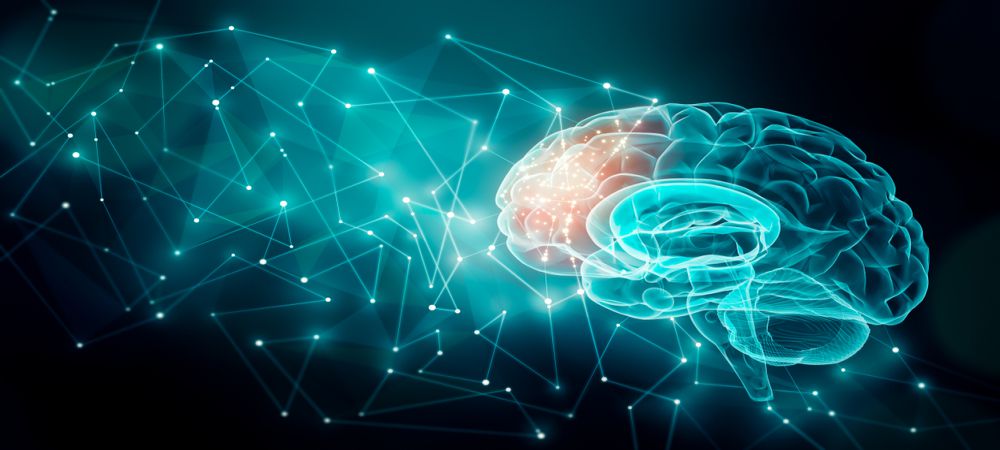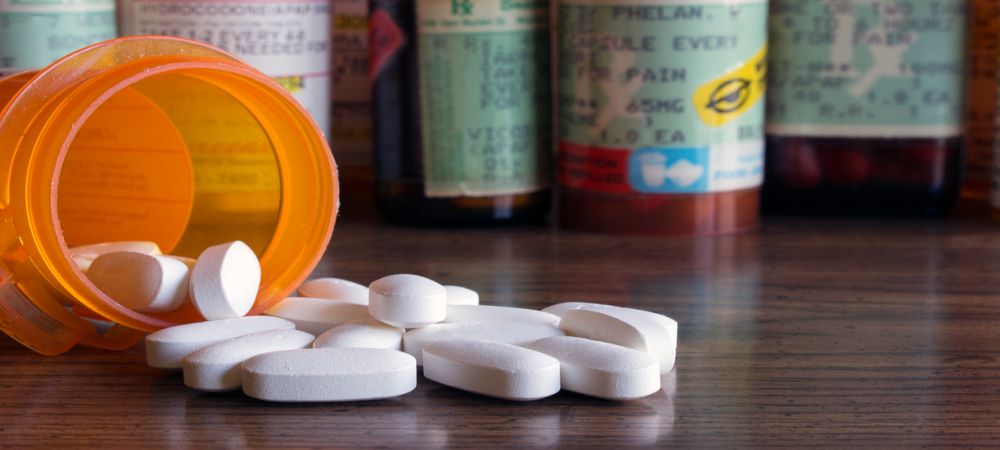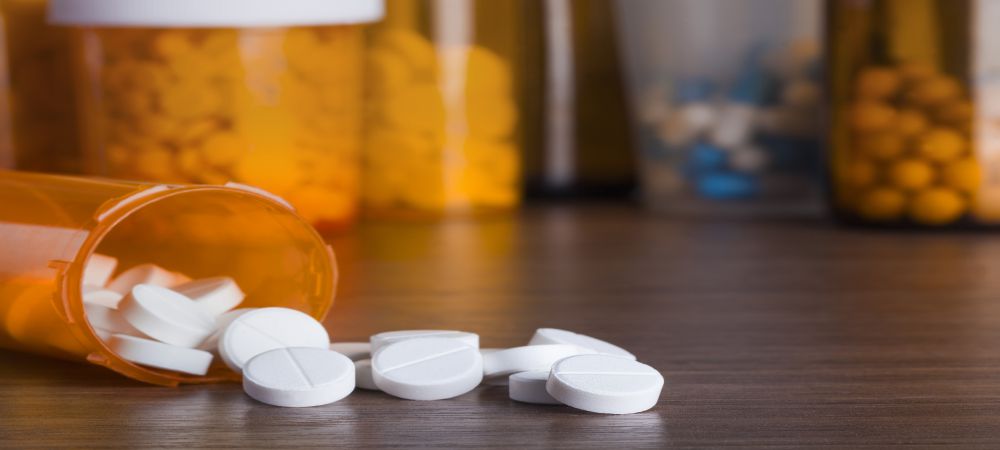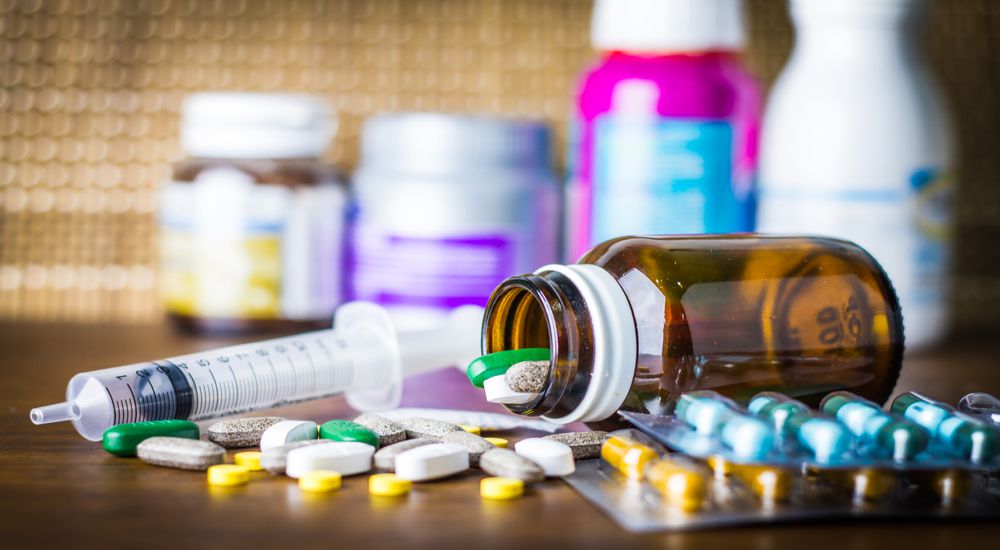
The Long Term Effects of Prescription Drug Abuse
When you misuse drugs, there is a huge possibility that the habit can become addictive. This means that one of the long-term effects of prescription drug abuse is addiction. Simply put, a drug can become addictive when you use the drug against your doctor’s instructions.
People usually forget that most over-the-counter and prescription drugs can affect both physical and psychological functionality. For instance, several medications have warning writings or labels about the potential side effects of the drug.
You may have come across drugs with labels displaying dizziness or drowsiness as side effects. Driving or leaving your comfort zone after taking such drugs may be chaotic.
Typically, people who use these types of drugs and still drive often cause different car crashes every year. Additionally, prescription drugs may cause hallucinations, change depth awareness, lower or raise blood pressure, blur vision, and may cause you to react slowly or quickly. These effects are essentially risky when you are driving.
As a patient taking medication for any infection, disease, or illness, drug prescription is inevitable. However, numerous stories point to the fact that patients can experience addiction to these drugs. For instance, a patient undergoing body pain treatment can experience addiction to painkillers.
An increasingly prevalent issue in Canada, prescription medication abuse affects all age groups, including teenagers. Some of the drugs prone to continuous abuse are stimulants, sedatives, anti-anxiety, and opioid painkillers.
Though addiction comes from the long-term effects of prescription drug abuse, short-term effects can still be dangerous. Early identification and intervention of prescription drug abuse may prevent the dangers of prescription drug addiction.
Over the course of this blog, we will break down the possible long-term effects of prescription drug abuse. If you or a loved one are staring down the dark hallway that is prescription abuse, this information can be useful in helping you make the best decision where treatment and recovery is concerned.
What is Prescription Drug Abuse?
In general, prescription drug abuse refers to the use of prescription medication in an improper way. Typically, it’s using them in a manner different from the prescription provided by your doctor. An example is when you use a pain killer for more than the preset period recommended by your doctor.
The problematic use of prescription drugs covers the spectrum — everything about drug usage and prescription. Right from snorting or injecting ground-up pills to treating back pain with your partner’s or friend’s prescription painkillers, these are all forms of prescription drug abuse.
Because of how broad it is, it is easy to unknowingly abuse prescription drugs. As a result, prescription drug usage requires ultimate caution, especially for those that are addictive.
Regardless of the adverse side effects, drug abuse can still become ongoing and compulsive. A ravaging problem about prescription drug addiction is that it can affect all ages, including teens. In general, stimulants, sedatives, anti-anxiety medications or opioid painkillers are too often and easily misused in Canada.
Fortunately, early recognition of such abuse symptoms and swift intervention can help prevent prescription drug addiction. Typically, this type of addiction involves people developing a total dependence on prescription drugs.
Often, individuals tend to misuse drugs once the drug proves useful. Most people misuse it by taking higher doses than recommended to achieve a self-satisfying result than the doctor’s prescription. Increasing dosages or continuously taking the same medications over a long period usually causes tolerance for such effects. Also, it neutralizes the substance’s presence in your body system.
Additionally, tolerance usually reduces the effects of the drug. It also minimizes the happy feeling from a lower dose, meaning you’ll be needing a larger quantity to attain the same high. In several cases, misusing prescription drugs usually happens due to a spontaneous pursuit of the pleasurable feeling some medications provide.
Prescription medication abuse comes with several adverse side effects. It’s essential to be able to identify these side effects and seek help. This way, you’ll be able to avoid further or potential health risks.
Types of Prescription Drug Abuse
At our facility, we can treat several types of prescription drug addictions. However, it’s essential to fully understand that these prescriptions usually determine the symptoms you may exhibit. As such, each type will affect the average individual in distinct ways.
Generally, it is possible to misuse any prescription drug. However, the effects and properties of some medications may increase the possibility of misusing them. Furthermore, there is a proportional increase in the potential harm and long-term complications it may bring along.
Here are the three most common types of prescription drug addiction:
Opioids
Generally, opioids are a specific class of prescription drugs known by several other names. Examples are Codeine, Morphine, OxyContin, Percocet, Percodan, Vicodin, and morphine. In general, these drugs are prescriptions to help boost your psychological management during treatment by removing the brain’s sense of pain.
This is typical because the drugs possess pain relief capabilities. Also, they trigger the instant release of dopamine, making it somewhat easier to develop an addiction to these kinds of painkillers.
Typically, these medications are safe when used according to their prescription. However, they can become disastrous when you start to consume them in excess or high doses. Consuming one large quantity of these drugs can result in death or respiratory failure. Also, the danger opioids pose become even more significant when combined with alcohol or other substances.
Stimulants
Stimulant drugs are generic medications that influence your energy and alertness levels. These drugs are useful in treating fatigue, ADHD, tiredness, and depression. These types of medications include Ritalin, Dexedrine, Concerta, and Adderall.
Typically, most prescription drugs within this category can result in euphoric feelings that prompt you to up their usage. Ultimately, stimulants will raise your heart rate and blood pressure upon consumption. As such, consuming excessive amounts of stimulants can lead to heart failure or irregular heartbeat.
Also, stimulant withdrawal comes with a smattering of side effects. Examples of such adverse effects include depression, irregular sleep patterns, inability to sleep, fatigue, etc.
The Central Nervous System Depressant
CNS depressants usually slow down the brain’s functionality. It can also affect individuals by producing a drowsy or calm feeling within the host system. They are commonly known as tranquilizers or sedatives.
These depressants are usually applicable in treating panic attacks, anxiety disorders, and other related issues. The major components include benzodiazepines and barbiturates like Xanax, Librium, and Valium. Furthermore, unnecessary or excessive use of this type of prescription drugs can result in addiction or total dependency.
Related article: Why do People Get Addicted to Prescription Drugs
What are the Symptoms of Prescription Drug Abuse?
The symptoms of prescription drug addiction often vary from one person to another. However, some exceptions and factors determine potential addiction or not. For instance, prescription drug addiction depends on the type of drug you’re misusing, the amount, and the frequency at which you use the drug.
Here at 1000 Islands Addiction Rehab centre, our prescription drug addiction treatment is a function of these factors. The symptoms that come with prescription drug abuse symptoms can be divided into three (3) main categories, i.e. psychological symptoms, behavioural symptoms, and physical symptoms. The psychological signs are symptoms relating to your mental interaction with your environment with or without the drug.
Behavioural symptoms relate to how you behave with or without the drug and how you interact with people. For example, someone who rarely talks and is less active around people may become more active or even violent around the same people after abusing prescription drugs.
Below are a few signs that you or someone close to you may have a prescription drug abuse problem:
- Anxiety
- Depression
- Low emotional reactivity or severe low mood
- Hostility and mood swings
- Irritability
- Inability to concentrate or stay focused
- Euphoric feelings
- Paranoia and confusion
- Memory issues
- Taking prescription drugs just to relieve stress or relax
- Agitation.
Here are a few social and behavioural symptoms of prescription drug abuse:
- Visiting different doctors for the same condition just to obtain numerous prescriptions
- Taking prescription drug faster than scheduled
- Placing an order for a prescription drug over the internet
- Misplacing prescriptions and always requesting replacements
- Forging or stealing prescriptions
- Putting a priority on taking or obtaining medication compared to enjoying activities you used to do without drugs.
- Wanting to take prescription drugs but not being able to
- Being defensive and secretive about your prescription drug abuse
- Inability to stop drug usage even when the negative effects are evident and severe.
Some physical symptoms that come with prescription drug abuse include:
- Intense cravings for the prescription drug
- Headaches
- High body temperature
- Poor sleep pattern, or insomnia
- Low or high level of appetite, leading to changes in your overall weight
- Nausea and vomiting
- Constipation
- Slowed breathing
- Heart palpitations
- Slurred speech
- Coordination problems
- Unresponsiveness and being immobile for some moments, i.e. catatonia
- Insomnia or low sleep patterns
- Increase in drug tolerance levels
- Experience withdrawal signs if you stop abruptly, etc.
Short-Term Effects of Prescription Drug Abuse
Most psychoactive medications are mind-altering. They are capable of changing the way you feel, act, and think. Abusing prescription medications can make you feel euphoric, excited, and sometimes invincible.
You may behave in a way you’re unaccustomed to, become violent, paranoid, or even hostile. Psychotic side effects such as delusions and hallucinations are also a possibility of prescription abuse. However, these behaviours can go on to become unpredictable or erratic. As a result of this, there is a possibility that you may end up endangering yourself.
While it may make you feel exceptional, drugs can also reduce your inhibitions. It can even expose you to taking more significant risks that may lead to injuries. Or, in some cases, criminal or legal consequences.
Long-Term Effects of Prescription Drug Abuse
Staying on a prescription drug for longer than the mandated usage timeline will only expose you to dangerous risks. Sometimes, the side effects can cause severe damages to your system capable of bringing death.
Commonly Abused Prescription drugs and Their Long-Term Effects
There are several kinds of prescription drugs that are very addictive, with high potential exposure to abuse. In general, taking these prescription drugs according to your doctor’s instruction and supervision will prevent any addiction or adverse effects.
However, incorrectly using prescription drugs can be significantly dangerous to your long-term behavioural, physical, and mental wellbeing. Abusing these drugs over a long period can cause organ damage or worsen your mental health problems. Sometimes, it may even go as severe as causing permanent physical impairment.
Most of these medications usually come with a risk of overdose, mental illness, or even death when misused. Below are the long-term effects of commonly abused prescription drugs:
Long-Term Effects of CNS Depressants
This is also popularly known as the control nervous system depressants. Generally, this medication is useful for slowing down the brain’s regular activity. They are prescription drugs available for people who are unable to control rapid brain activities. Or sometimes for people who are struggling with seizures, panic attacks, insomnia, or anxiety.
Some of the long-term effects of this kind of prescription drug abuse include:
- Motor functional damage due to brain damage
- Seizures
- Addiction
- Overdose
- Death
- Loss of cognitive function, etc.
Long-Term Effects of Opiate Painkillers
These are usually effective for treating acute or chronic pain a patient may experience after a surgery or injury. Sometimes, it is also useful for treating pain from a cough – examples are codeine cough syrup. Opiate painkillers are the most commonly abused types of prescription drugs.
In fact, teens have access to these drugs because they are easily prescribed. Sometimes, they get over-prescribed to adults as well.
However, this practice usually leads to leftover pills frequently available in the medicine cabinet at our homes. It’s quite unfortunate that one of the few short-term risks include overdose.
The long-term health risk includes:
- Addiction
- Intense withdrawal signs
- Respiratory failure
Long-Term Effects of Stimulant Abuse
Methylphenidate and dextroamphetamine are both common prescriptions for teens struggling with ADHD. In teens, these drugs provide a calming effect and help to boost focus. However, the reverse is the case in adults.
These medications possess a stimulant effect that can be highly addictive for adults and are even deadly. Long-term use of the drug can cause health issues that include:
- Malnutrition
- Overdose
- Paranoia
- Extreme loss of weight
- Death
- Extreme insomnia
- Addiction
- Dehydration, etc.
Other Side effects of Long-term Prescription Drug Abuse
Below are some of the other adverse side effects of long-term prescription drug abuse:
The Tolerance Level
Your system will require more of the prescription drugs to be able to benefit from its pharmacological effects.
The Dependency Level
It will alter your brain’s structure over time. The result of this change is that you continuously require prescription drugs to stay functional. Stopping or reducing the prescribed medication may completely change your brain’s chemistry over time, resulting in withdrawal symptoms.
The Resistance
Ultimately, these prescriptions will have little or no effect on you, except to keep off withdrawal symptoms. One of the long-term effects of prescription drug abuse is resistance. Once your body develops resistance to the drug, it becomes useless for the intended course.
When this occurs, some patients often end up being prescribed stronger medication in addition. In the end, this may result in physical dependence.
The Original Issue is Never Resolved
In most cases, when dealing with the long-term effects of prescription drug abuse, you may not be able to solve the original problem.
Typically, the condition that brings about the prescription is just being symptomatically treated. This is in stark contrast to the real goal of treating the cause of the condition. This is mostly true with prescription drugs used for treating mental health conditions.
More Sensitivity to Pain
Generally, some evidence suggests that opiates only have pharmacological benefits for three months. Anything beyond that means you only get a little pharmacological effect. As such, your pain may become worse if your body doesn’t get the pain relief it is used to.
Alternative Complementary and Holistic treatments are not Explored
There are a lot of benefits to get from complementary, holistic therapies and treatments. Even in chronic pain-related conditions, CBT (cognitive behavioural therapy) and mindfulness are a prevalent and useful pain management tool.
Other complementary and holistic therapies such as reflexology, acupuncture, and counselling effectively treat long-term mental health conditions. However, due to prescription drug abuse, one long-term side effect is that you will miss out on is their benefit.
In fact, not incorporating all of these other methods while undergoing pain-related treatment is a reason people become dependent on prescriptions.
Depression and Anxiety Development
One of the most common long-term effects of prescription drug abuse is the continuous development of depression and anxiety. Prescription drugs can cause damage to the brain’s reward or pleasure system when abused over a long period.
In most cases, this may result in you becoming anxious and feeling depressed. This damage comes with an imbalance in your brain’s chemistry. Because of this, you may not be able to feel or differentiate pleasure anymore.
Prescription Drug Addiction Treatment
At 1000 Islands Addiction Rehab centre, we offer different treatment options that are particular to you and effective to boost your recovery. There are various strategies for attaining sobriety.
We will start by helping you understand your addiction fully. This includes your life outside the drug, why and when you use prescription medications, and other useful information.
After that, we will evaluate your mental and physical wellbeing and assess your drug history. This way, we will be able to know if there are other underlying issues that need attention.
Here are a few options for prescription drug addiction treatment:
- Going through medication to help your detox procedure
- Going through therapy
- Going through self-help groups
- Prescription medication alternatives such as Cognitive Behavioural Therapy (CBT), Yoga, etc.
Conclusion
In general, there are several long-term effects of prescription drug abuse. From the long-term physical effects to the behavioural and mental effects, we have taken the time to analyze these side effects.
If you’re feeling any of these effects, it’s essential to reach out to prescription drug abuse counsellors or professionals for help to prevent the severe effects of prescriptions.
Treating any addiction requires highly tailored care that considers everything regarding your medical history. This includes when and why you started the prescription medication in the first place.
Going through medically-supervised detox is often recommendable for patients struggling with addiction. Most especially, addiction treatment is more effective where patients are given replacement drugs to treat the initial health issue.
Defeating the shame or embarrassment that you feel because of addiction is the first step towards recovery. You’re not alone. There are also people like you undergoing recovery in rehab with professionals helping them achieve wonderful results.
Call 1000 Islands Addiction Rehab & Treatment Centre for addiction treatment programs.
Related article: What Are The Signs Of Prescription Drug Addiction?






